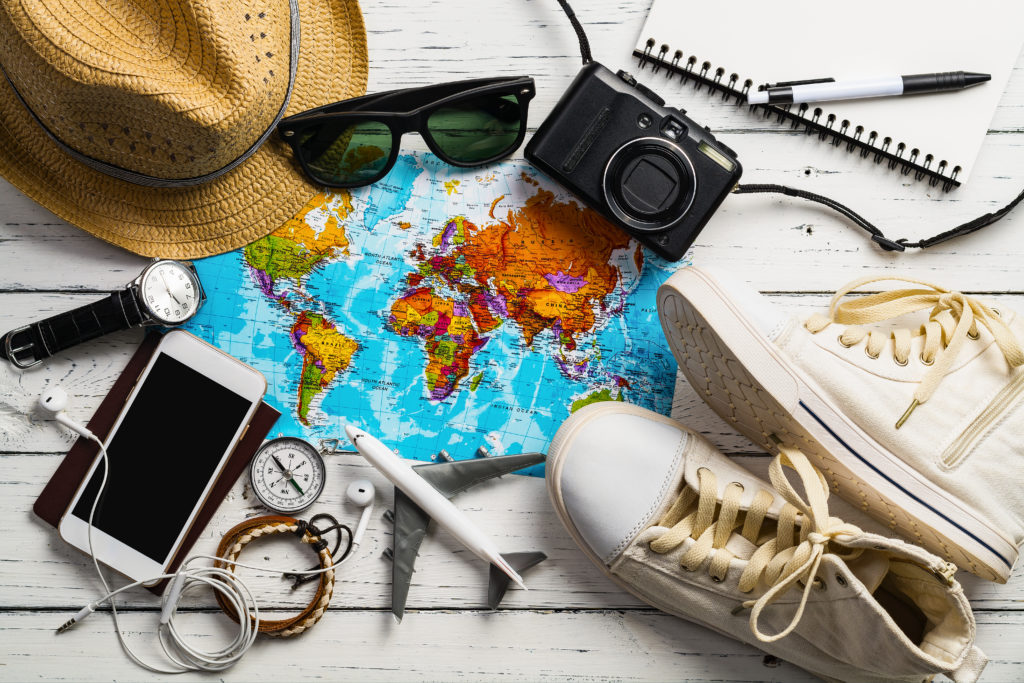This article will cover everything you need to know about traveling abroad in Southeast Asia.
Planning a trip abroad can be an overwhelming and daunting task to take on. Especially if it is a country you may be unfamiliar with. Southeast Asia is one of the most popular travel destinations in the world. If you’ve never traveled internationally there will be a lot of new and unknown experiences you will face.
It’s critically important that you are prepared for these unfamiliar circumstances so as to not end up in any compromising situations. While there are a number of items you’ll want to be prepared for while you are actually traveling, a majority of your time will be spent preparing for the trip.
If the necessary pre-trip planning is completed correctly, you will be set up for smooth sailing once your trip starts. It is ideal to start planning your trip approximately three to six months ahead of your travel date. This allows for adequate time to cover all your bases and take care of the items that may take longer to complete.
Here’s the complete guide to traveling abroad in Southeast Asia.

Pre-Trip Planning
The biggest area for planning your trip will be prior to departure. The tasks that need to be completed will be dependent on how long you intend to travel abroad.
Since Southeast Asia is one of the more affordable countries to travel around, you may want to consider planning an extended trip. The flight cost of traveling abroad in Southeast Asia is on the higher side but this is compensated for by the cost of traveling within the country. This may be an incentive for you to travel for a longer period of time.
Passports: First and foremost, you’ll want to make sure that you have a passport. If you already have a passport, make sure to double-check the expiration date.
Many countries won’t allow you to enter if your passport expires within six months. If you end up in a bind, you can always expedite your passport, but you should be prepared for your passport to take four to twelve weeks to arrive after filing your application.
Visas: In addition to your passport, you will want to make sure you’ve applied for a visa. Visa requirements can change depending on your nationality and can take some time to receive once the application is complete. It is wise to prepare on receiving your visa prior to travel so that you don’t run into any hiccups while you are abroad.
Medical Considerations: There are medical considerations that should be taken into account as well, prior to your trip. If you currently take any medications, you will need to make sure that you have enough to last you through the entirety of your trip. Keep in mind that you may decide to extend your stay once you arrive, so you should be prepared for some additional reserves.
You will also want to make sure that your insurance covers overseas travel. If your insurance does not, you can purchase travel insurance or add additional coverage to your existing plan. In addition to medication and insurance, you want to be prepared with country-specific immunizations.
Many countries require you have vaccinations against diseases like malaria and yellow fever. Be prepared to present an Official International Certificate of Vaccination, otherwise known as a yellow health card.
Finances: You will need to make sure you have access to your capital while traveling in case of an emergency. Explore your options for the best way to make your cash assets accessible while traveling. Additionally, you will want to ensure that your credit card works in the countries you plan on visiting and that you alert the credit card company so that your charges aren’t flagged as fraud.
In addition to making sure you have access to money while traveling, you should make sure that all your bills are paid in advance and that you discontinue any services you won’t need while traveling. If your trip is long enough, this is a good time to consider moving your belongings into a storage unit and ending your lease or renting your apartment or home if you lease.
This can be a great way to earn additional income while traveling and cut down on some of your expenses at home. If you decide to temporarily move while traveling, you may want to consider hiring a moving service to help you relocate. There will be a lot of last-minute tasks that need to be taken care of and this is a way to help reduce the stress associated with preparing for a big trip.
Accommodations and Transportation: Depending on the length of your trip and how far in advance you want to plan each day of your travel, it will influence how much of your accommodation and local transportation you can plan in advance.
However, you decide to structure your trip, you should focus on booking accommodations and transportation as far ahead as possible in an effort to find the best rate.

On the Trip
It’s important that while you are on the trip, you have access to a cell phone and have a security plan in place if anything goes awry. As soon as you arrive at your destination, you’ll want to make sure that purchase a SIM card and a plan with a local provider.
Remember to bring your phone from home, as the SIM card you purchase once you arrive will likely work in the phone you use at home. It is valuable to have a phone while traveling so that you can inform your emergency contacts of your travel plans. This will also be helpful in planning your trip while you are traveling.
It is a good idea to register with your embassy and make sure you know the location of the local embassy in case of an emergency. Additionally, you should make digital copies of all of your travel documents in the event that they are stolen.
It is recommended that you familiarize yourself with local tips as to not appear too much as a vulnerable tourist who could easily be taken advantage of.
Make sure that you create a budget for your trip so that you are managing your finances responsibly. When creating a budget for your trip, add a line item for emergency expenses.
You always want to be prepared for unexpected expenses to occur during your trip and no one wants to be in a foreign company without the capital for an unforeseen emergency.
If you have followed all of the tips for pre-trip preparation you should have yourself set up for minimal effort on the trip itself. This will allow you to focus on the trip, immerse yourself in the experience and enjoy the opportunity to its fullest.
Additional Tips
Below we’ve outlined a few additional tips to keep in mind for your traveling abroad in Southeast Asia:
- If you want to make a little extra cash while traveling but don’t want to manage the hassle of moving, you may want to consider subletting your space while you are gone.
- Change money once you’ve arrived – you will get a better exchange rate.
- Pack light and for the right conditions.
- Don’t overbook yourself before the trip even starts. Plan some days for relaxation. You may arrive at your destination and receive recommendations for additional sights to see. You’ll appreciate having the flexibility to incorporate these into your agenda.
- Do research to support socially responsible and ethical companies.
- While most people don’t want to consider end of life planning, when thinking about a big trip abroad, it is an important reality to keep in mind. If you don’t already have one, this is a good time to consider drafting a will or establishing power of attorney for a close friend or family member.
You are now prepared to start traveling abroad in Southeast Asia!




No Comments